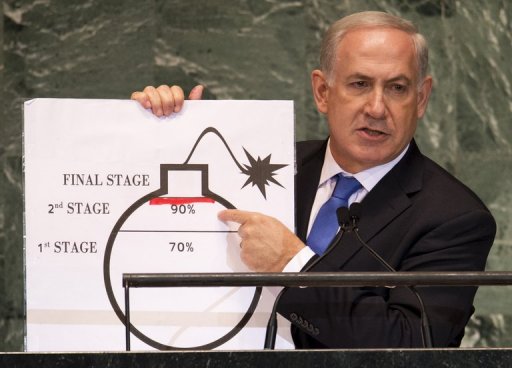In its February 16 issue, The Washington Post described Secretary of State Condoleezza Rice’s trip to the region as a “high-profile peace mission. There was only one problem with the wording. It appeared in a news-item on page 18, a clear indication of the relatively low priority the trip enjoys on the political agenda of the United States and therefore the very low probability of its success.
Worse still is the common denominator shared by all those who attended the “high-profile meeting held on Monday: Israeli Prime Minister Ehud Olmert, Palestinian President Mahmoud Abbas, and Rice have already proven that they can “deliver little if anything. Abbas does not possess a politician’s fighting instinct to make him an effective prime minister in a country like Sweden, let alone be a leader in the tumultuous, violence-ridden Palestinian arena. Olmert, trapped between the fiasco of his foray into Lebanon and seemingly never-ending corruption charges against him, competes with Abbas in poor leadership qualities. And Rice has been consistently unsuccessful in almost everything she has done, serving a president whose inclination is to deal with Iran, but who is increasingly compelled to defend his policies in Iraq.
Yet leadership ability, particularly when it comes to Abbas, would be critical to any real attempt by Rice to advance a negotiation process.
At the very minimum, renewing negotiations that involve give-and-take by definition requires two sides sufficiently coherent and solidified to engage in an exchange. The Palestinians, by their own account, have yet to reach such a level of internal coherence and solidarity despite the fanfare accompanying the signing of the Mecca accord and the resignation of Palestinian Prime Minister Ismail Haniyeh as a first move toward the emergence of a unity government. With 100 deaths linked to politically motivated violence since December, Palestinian skepticism seems well-founded. Abbas’ weakness has only fed Palestinian polarization.
Even more critically for Rice, the Palestinian president would clearly have to lead the unity government and the negotiations with Israel and Hamas would have to follow. Yet this is the dynamic Abbas has consistently failed to establish since Hamas’ electoral victory in January 2006. To the contrary, one notable failure, his inability to thwart attempts to create Hamas’ Executive Force and then prevent its from growing, may have already cost the Abbas camp the irretrievable loss of Gaza to Hamas.
Rice knows that it was US policy that gave Hamas the opportunity to win and gain the political clout that has since catapulted the Syrian-based and supported Hamas political leadership to the highest forums of Arab politics. It was American policy that placed the movement in a position where it adeptly aligned with Iran in order to initiate counter-bids and payoffs by the opposing Saudi side in the new Middle East cold war.
The US watched with dismay how the game paid off handsomely for Hamas in the Mecca agreement. The precedent of a fundamentalist government coming to power by virtue of a US-directed policy of democratization, if not checked, could prove disastrous to US and Western interests.
Rice’s mission, then, is hardly to made peace but rather to check radical fundamentalist power in Iran, Iraq and in Palestinian areas. In the Palestinian arena, this means compelling Abbas to be tougher toward Hamas in two important ways. The first is to groom the leader tough enough to handle Hamas: Mohammad Dahlan. The second move is to stop Hamas from creating a significant military force in the West Bank.
Ostensibly, the Israeli leadership should be firmly behind these attempts. But weak and fractious leadership is jeopardizing the attainment of goals Israel shares with the US. Olmert has caved in to pressures by Hamas’ sister organization in Israel, the Islamic Movement, over the Temple Mount, thereby further bolstering Islamists in the Occupied Territories. Moreover, instead of preserving a non-existent ceasefire, Olmert should have aimed, as in the West Bank, to achieve a threshold of penetration that would allow preventive arrests of would-be rocket launchers. Israel was beginning to achieve such a capability in the summer of 2006, after which it erred in adopting a policy of restraint.
Meanwhile, Foreign Minister Tzipi Livni is harming Israel’s strategic interests by trying to outflank Olmert with misguided liberal policies. Instead, the order of the day should be firmness in meeting internationally-sanctified goals that require Hamas to recognize Israel, accept rather than “respect all existing agreements and totally cease terrorism.
The Mecca agreement was presumably a power-sharing deal among Palestinians. Rice’s task is to make sure that the power-sharing at Mecca remains strictly on paper. The true power-sharing should take place among Israel, the US, Abbas and probably the Jordanian leadership. It would rest on a strong common denominator: opposition to an Iranian-orchestrated radical Islam that supports Hamas. For while Hamas might have raised the stakes in Mecca, its ardor is nevertheless firmly implanted in Tehran………Hillel Frisch is a senior researcher at the Begin-Sadat Center for Strategic Studies of Bar-Ilan University. This commentary first appeared at bitterlemons.org, an online newsletter publishing contending views of the Israeli-Palestinian conflict.

